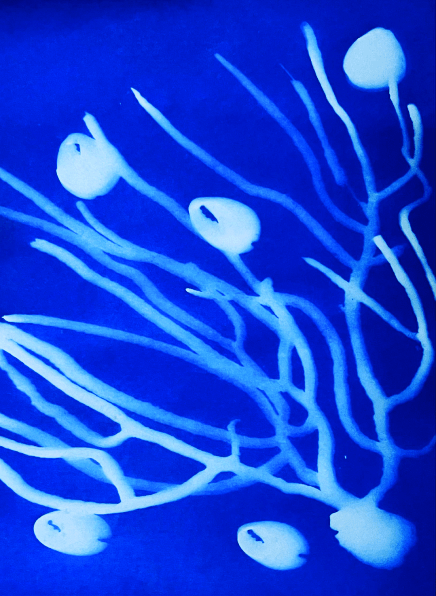

Mangrove Archives of The Blue Book Women*
Do they know of the wells that were poisoned? Do they know of the women who were used as sex slaves and others as slaves in German camps?”
– Chimamanda Ngozi Adichie 2021
Our concluding chapter by curator Anguezomo Mba Bikoro elastifies research of ecosystems and gender justice with Mangrove Archives, re-imagining Black womens’ testimonies on German colonial crimes inside O’Reilley’s The Blue Book (1913). The research expanding from the archives of Mohammed Lamin Foundation Nairobi, Public Juridical National Archives of Salvador-Bahia, Basel Afrikanisher Bibliothek, explores the existing gap between law and human rights restitution inside the discourse of museum reparations, from objects and missing narratives of human trafficking. If objects displaced from their creators could speak, what would those objects testify to? What frequencies and memories do they store? What does the landscape witness on the routes of displaced populations?
Institutions have neglected the erasure of historical archives about women, therefore the research suggests how testimonies are remembered and performed inside ecosystems preserved by grassroots feminist spaces which are not visible inside institutional archives. Reparations and restitutions are proposed through this model;
- Grassroots advocacy as forms of female empowerment
- The politics of accessibility to colonial knowledge and decolonial practices
- The knowledge of ecosystems as forms for resilience and repair
- The right to remember and perform grief
- Practical approaches in healing from abuse through transformational justice
- The creation of collective spaces for de-traumatisation work as restorative justice
The chapter focuses in Senegal in the Sinne Saloum delta in the mangrove areas where communities of fisher women restore natural habitats as ways of transformational justice against unaccounted colonial crimes; Gorée island and the censored narratives of queer justice inside the slave trade; Bignona as the space of the earth’s magicians where soil become feminist de-traumatisation rituals to heal ancestral displacement; and sonic listenings of feminist resilience in ocean revolutions.
The archival materials from Black feminist communities in Salvador-Bahia, Nairobi, Namibia and Senegal come to a space of communal gathering for collective restorative justice with radio panel talk conversations, somatic body healing workshops and a mobile library of things we forgot to remember. In the practices of intersectional lineage through gender justice, judicial court documents, mangrove ecosystems, decolonial film production, photography and underground feminist radio, the chapter proposes other somatic ways to account for violence through transformation of The Blue Book to remember forgotten black feminist narratives.
COLLABORATORS

